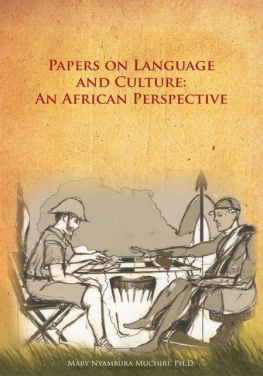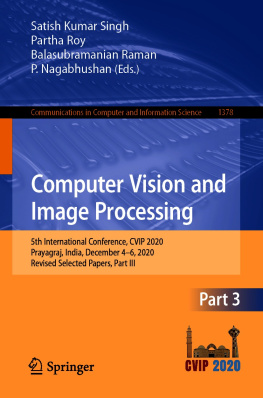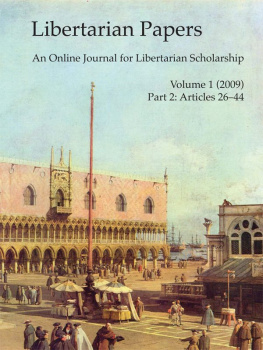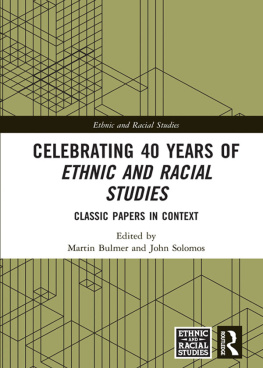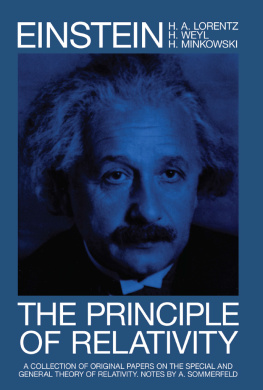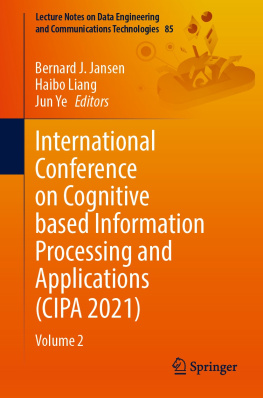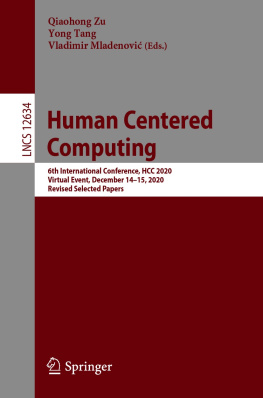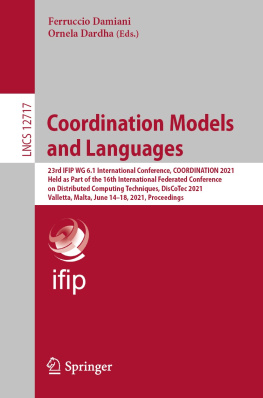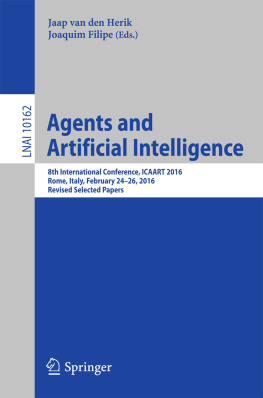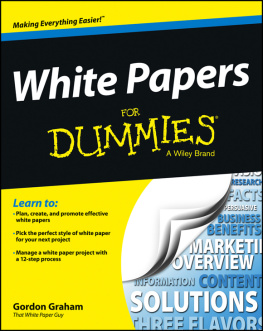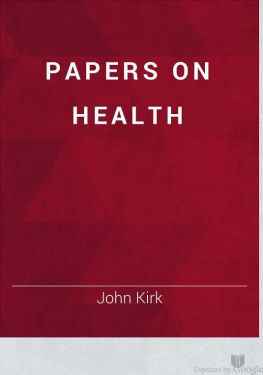Papers on Language and Culture:
An African Perspective
by
Mary Nyambura Muchiri, Ph.D.
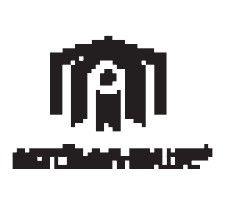
AuthorHouse
1663 Liberty Drive, Suite 200
Bloomington, IN 47403
www.authorhouse.com
Phone: 1-800-839-8640
2009 Mary Nyambura Muchiri, Ph.D.. All rights reserved.
No part of this book may be reproduced, stored in a retrieval system, or transmitted by any means without the written permission of the author.
First published by AuthorHouse 6/10/2009
ISBN: 978-1-4389-1236-3 (sc)
ISBN: 978-1-4685-2735-3 (ebk)
Printed in the United States of America
Bloomington, Indiana
Contents
To my Loving Husband,
Humphrey Wamai Muciiri,
Who gave me the chance to go back
to school, despite many criticisms from
both my friends and his.
He was also brave enough to do the same years later.
I am very grateful to all who contributed in the discussions after the papers were presented at various venues and the editors of the publications where some of the papers have been published, for their insights that helped me in the revision of these papers.
Of particular note are graduate students and faculty of Bowling Green State University, in Ohio, where the paper on Bantu Rhetoric was first presented. They had such an extensive and useful discussion that I have reproduced it separately from the paper itself.
I am also grateful to my husband, Dr. Humphrey Muciiri, who gave me the freedom to go and present anywhere I wanted, as he took the responsibility of the family, sometimes at very great odds.
Finally I thank my parents who taught me my mother tongue and helped me to find it an academic pursuit. This was at a time in our countrys history when we were punished for speaking our mother tongues. We were supposed to use the civilized English language of the colonizer and forget the primitive languages of our ancestors!
I hope these papers will contribute a little towards the rebuilding of our national dignity after many years of humiliation, and help the future generations find a place to start during their quest for the past and the values of their forefathers.
1.Extending the Concept of Ubuntu
Extending the Concept of
Ubuntu from South Africa
This Paper Was First Presented at the International Society for African Philosophy and Studies (ISAPS) conference, Wooster, Ohio. March 8-10-2002, and Revised in August 2007 for this Publication.
Abstract.
The Gikuyu language, (also known as Kikuyu), belongs to the Bantu group of languages and is spoken by the largest ethnic group in Kenya. Through an examination of its semantic domains, its culture and some of its proverbs, I hope to show that the concept of Ubuntu, is not restricted to South Africa, but is familiar to most of the Bantu peoples of Africa.
I have chosen to concentrate on the linguistic semantic domains of the Gikuyu language because these give an overview of the groups World View, and the proverbs because they are specific examples of such a World View. The two constitute some of the most important components of the groups value system, as Barra (1994) points out in his foreword to the 1000 Kikuyu Proverbs , the collection I have used for reference.
The proverbs are the quintessence of Kikuyu eloquence, and represented for centuries the code of tribal laws used for lack of written books. They are full of wisdom and embody the maxims of natural law written by God in the heart of all men. Therefore, they are, for the Agikuyu, a precious inheritance, which must not be lost in the changes now taking place.
Even a casual look at the artistic works of African writers from West and East Africa, like Chinua Achebe or Ngugi wa Thiongo, will show that proverbs are one of the most important representations of African wisdom and philosophy. I shall, therefore, investigate how the concept, called Umundu (humanness) in Gikuyu, is similar or different to that of Ubuntu as it has been defined in the South African context. I shall also consider how Ubuntu may contribute to a universal idea of humanness that may constitute Africas contribution to the current global discourses on peace making.
A quick browse on the internet made me aware of the many contexts that the word Ubuntu is currently being used. So, as stated in the abstract, I discuss the term only as used in the South African context, specifically to refer to the transition from apartheid to democracy.
Perhaps more than all others, the former president, Mandela, and Bishop Desmond Mpilo Tutu, are the two people who have come to be most associated with the fight against apartheid. Wilson in (Doing Justice) refers to Ubuntu as restorative justice. He says:
Ubuntu is a concept of justice unfamiliar to many modern non- African societies. It implies a system of justice based on mutual reconciliation. To give a simple example: one man has stolen a goat. When his act is discovered, he is asked to return the goat and to loan an additional goat to the victims family to make up for the lost resources. More importantly, he is expected to reach an understanding with the victims family, to honestly explain his actions and to atone with his neighbors. In this way, the cycle of hostility is halted .
The main purpose of the payment that is required of the culprit is not merely to restore justice but also to end the hostility between the two parties . It is also not just between the individuals but between the two communities. (Emphasis added).
Wilson goes on to explain that the Truth and Reconciliation Committee (TRC), is the embodiment of Ubuntu , in its attempt to allow, for perpetrators of apartheid, both black and white, to be granted diplomatic immunity and freedom from imprisonment with the main requirement of, A full confession before the committee, the victims relatives, and through the press, the world community. Through these open confessions, it is hoped that the people will reach a common understanding.
Though it has some problems, Wilson adds, like what some see as allowing criminals to re- enter the community, while some young people feel they have nothing to be reconciled to but a foreign and unfamiliar past, yet it has given the people, an opportunity to generate understanding and forgiveness across sometimes impossible boundaries.
An attempt to apply this concept to the global context would be to imagine the leaders of Israel and Palestine at a negotiating table, both confessing the atrocities they have been responsible for, and finally shaking hands as a symbol of forgiveness that would usher a new era of peace in place of the current terrorism. Is this at all possible? I hope by the end of this paper I shall have convinced my readers that it is possible, within specific parameters!
An example of the use of a public confession among the Gikuyu people is given in Ngugi wa Thiongos novel, A Grain of wheat , when Gikonyo confesses that he is the one who betrayed Kihika to the white men and no one dares to harm him. The need to confess is the driving force for almost all of Mugos life, another character in the same novel. We also find that the White people have learned that confession has great power for the African people, so the main way of alienating them from the other members of the Mau Mau movement is to force then to confess the oath of unity, thereby turning them into betrayers of their own people.
Father Cagnolo (156) also refers to a similar system of restorative justice among the Agikuyu to that described by Wilson when he describes what happened to a thief who commited a serious robbery among them:
The elders publish his name in order that his near relations may appear to arrange for his release. His guilt is known and the penalties are recognized since they are well defined in their traditions. He must pay seven times the things he stole, and if to commit the theft he dug a hole under the wall of the hut he must pay one more goat as compensation. A thief caught reaping in anothers field shall pay a penalty of seven goat skins.
Next page
